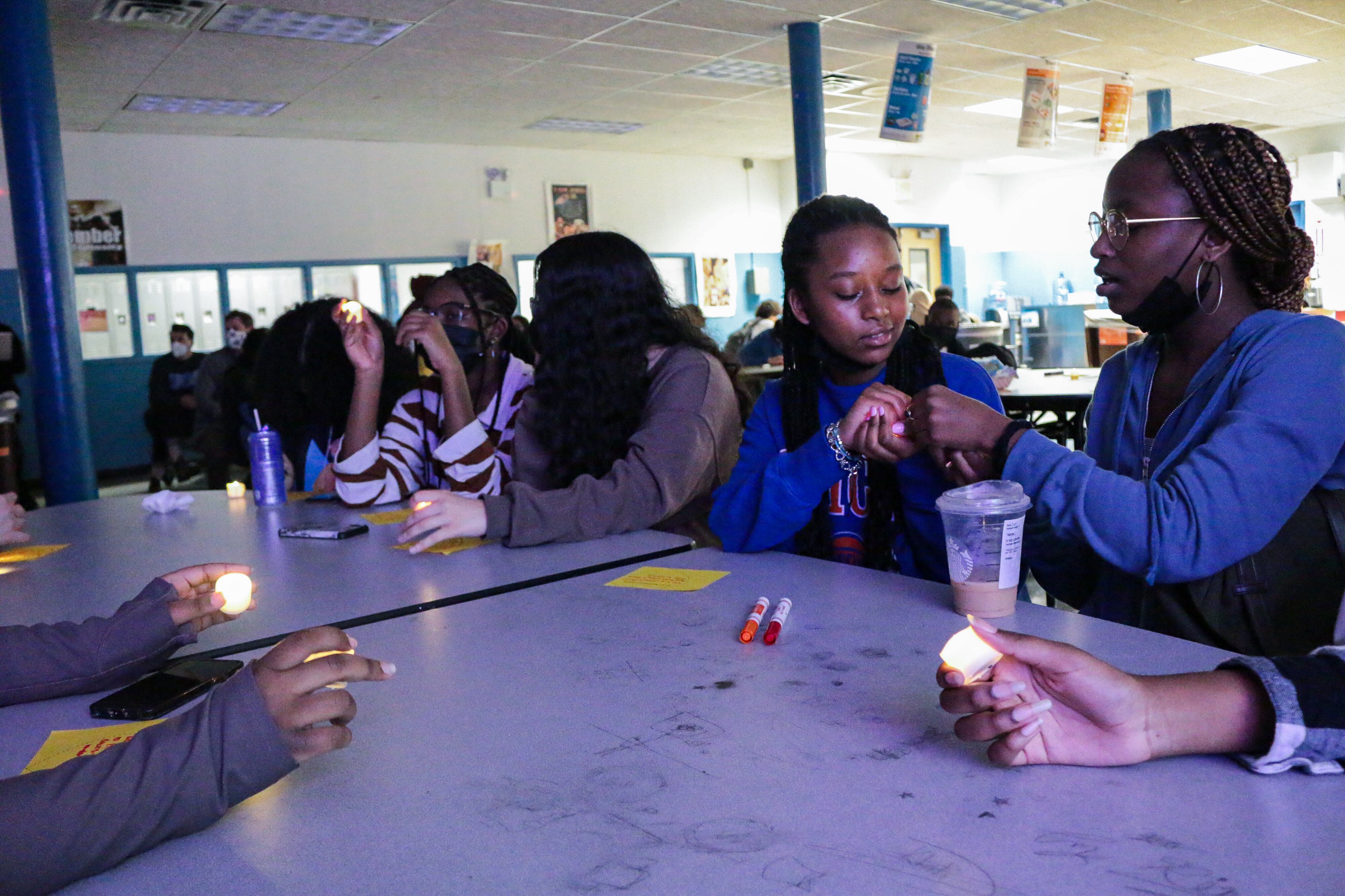Thanks to billions in federal pandemic relief funding, the city’s education department made plans to dramatically expand restorative justice programming, more than tripling funding over a three-year period to $21.6 million this school year.
But dozens of advocacy groups are now raising the alarm that much of that funding is “at risk” — including a planned expansion of restorative justice programs to all middle and high schools — according to a letter sent to top city officials that was released on Monday.
“Cutting funding and rolling back citywide restorative justice initiatives will deny schools the resources they rely on to respond to and prevent harm, support young people to navigate conflict, and hold students accountable for their actions while supporting them in feeling connected to school and learning,” says the letter, which was distributed by the Dignity in Schools Campaign, which advocates for alternatives to suspensions and other punitive discipline measures.
A spokesperson for the education department, Suzan Sumer, did not dispute that funding cuts for restorative justice are in the works. “We are still in the process of setting priorities for the upcoming year, but reprioritization does not necessarily mean a reduction in school support funding,” she wrote.
The education department’s security director, Mark Rampersant, hinted that the program may face cuts, but also said restorative justice programs have been effective. “As the Department of Education starts to think about the ways by which we can deal with the economic and financial shortfalls, there are premature conversations about [restorative justice,]” he said at a meeting of the Chancellor’s Parent Advisory Council last week.
A representative of the city’s Independent Budget Office said the $21.6 million in restorative justice funding was included in the city budget passed by City Council and signed by the mayor in June, but noted that the education department has leeway to reallocate funding. About $15 million of that planned spending comes from federal stimulus money.
Restorative justice refers to a set of practices that vary from school to school but which generally prioritize talking through conflicts through peer mediations and regular circle conversations as an alternative to suspensions. Those efforts gained steam under former Mayor Bill de Blasio, whose administration made it harder to suspend students for a range of infractions and limited lengthy suspensions. The reforms helped cut the suspension rate dramatically, but have won mixed reactions from educators.
The current administration’s philosophy has been less clear. Schools Chancellor David Banks has said he does not favor zero tolerance approaches, but the education department has declined to answer specific questions for months about their plans for restorative justice programs.
A central office employee familiar with restorative justice programs, who spoke on condition of anonymity for fear of retaliation, said staff have been verbally told that restorative justice programs are being cut. Restorative justice coordinators who work across multiple schools are being reassigned to superintendent offices, the person said.
“Positions like restorative justice coordinators will no longer be in effect,” the person said. “It will be up to the superintendents about whether they want to do restorative justice.”
The letter released by the Dignity in Schools Campaign also indicated that the education department is reorganizing its Office of Safety and Youth Development, though department officials did not respond to questions about the purpose of that move.
Martin Urbach, the restorative justice coordinator at Harvest Collegiate High School, said that funding cuts would likely mean less training and the end of a department program that provided funding to pay students to help organize training at their schools. (The school planned to pay about a dozen students under that program this coming year.)
“We will no longer have access to coaching and to a network of outside providers who do this work for a living and have been doing it really well,” Urbach said, adding that his position is safe because it is funded by his school.
While Harvest Collegiate has invested heavily in restorative approaches for years, Urbach worries about schools that aren’t as far along. “Now there will be schools that are like, ‘Okay, we don’t have to host a circle’” and may issue suspensions instead, he said.
Alex Zimmerman is a reporter for Chalkbeat New York, covering NYC public schools. Contact Alex at azimmerman@chalkbeat.org.







